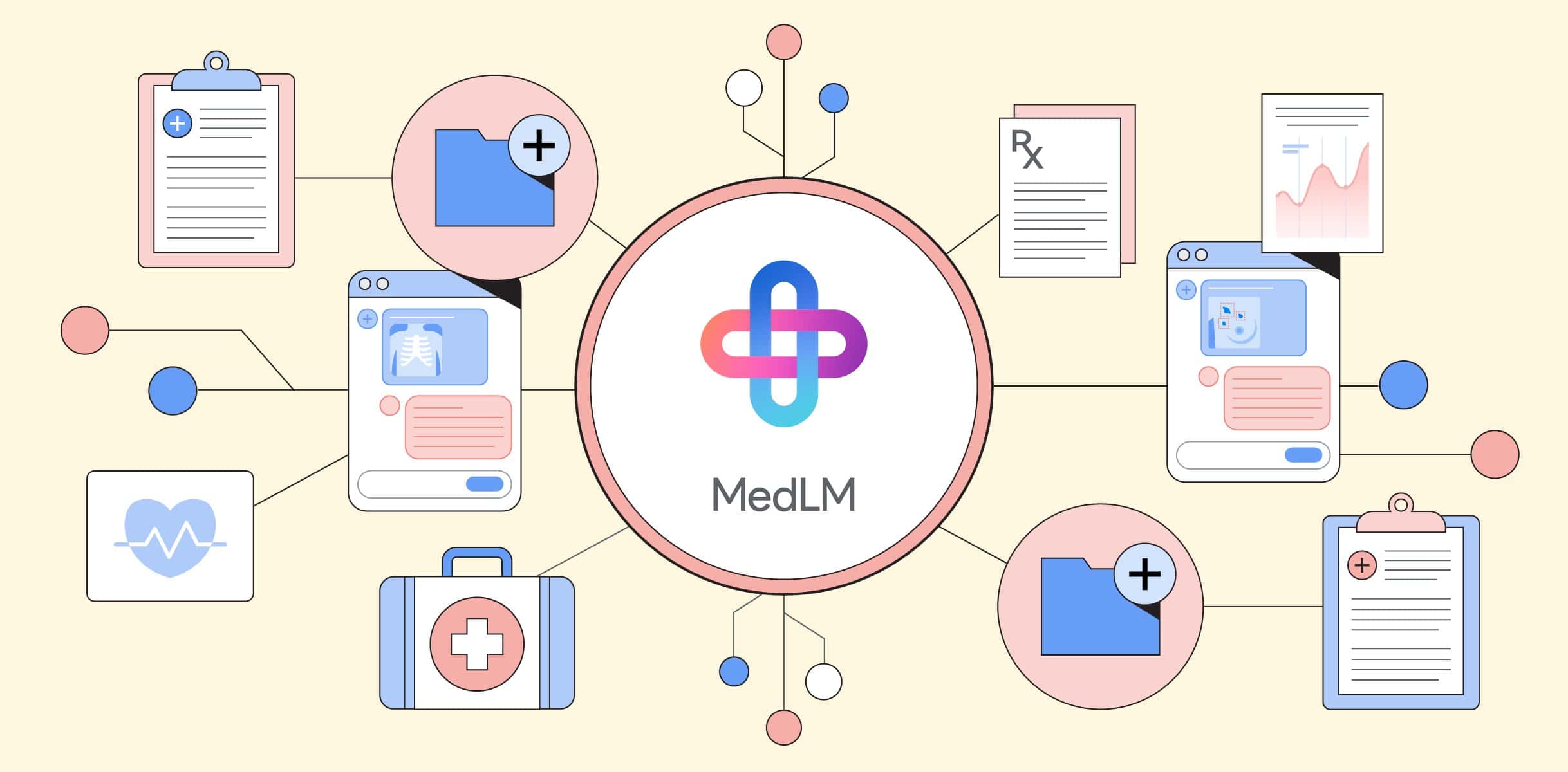
Google announced its latest innovation, MedLM, a set of advanced AI models tailored specifically for medical applications. By leveraging the power of generative artificial intelligence, MedLM aims to streamline the workflows of healthcare professionals. The suite comprises two models based on the Med-PaLM 2, offering versatility to meet the varying needs of healthcare providers. In real-world applications, HCA Healthcare is piloting MedLM to generate medical notes from clinician-patient dialogues, enhancing accuracy and efficiency.
- Google launched MedLM, a set of AI models for medical applications;
- This technology aims to streamline professionals’ workflow, saving them time and reducing burnout incidence;
- Google already partnered up with some companies, starting real-world deployments of MedLM.
The introduction of MedLM by Google marks a significant advancement in artificial intelligence and healthcare. With the potential to revolutionize how medical professionals interact with clinical data and patient information, Google’s latest suite of AI models signals a new era of efficiency and precision in medical services. MedLM stands out as a family of foundation models, thoroughly fine-tuned to address the intricate demands of the healthcare sector.
Enhancing clinical workflows
At its core, MedLM is designed to expedite and improve clinical workflows. Its implementation within HCA Healthcare, where the technology assists in drafting patient notes, is a testament to its practicality and effectiveness. The AI models harness Google’s Med-PaLM 2, which has garnered attention for scoring expertly in U.S. medical licensing exam-style questions. This prowess is now being channeled to aid clinicians, providing a tool that promises not only to save time but also to reduce the incidence of burnout among healthcare professionals.
Dual model flexibility
Google’s strategy involves offering a dual-model approach within MedLM to cater to different clinical scenarios. The larger model is tailored for complex tasks requiring detailed analysis, while the medium model is optimized for real-time applications and seamless integration into clinical settings. This flexibility allows health organizations to choose the model that best fits their needs, whether conducting in-depth research or seeking to enhance the speed and quality of patient care.

Real-world applications and partnerships
Real-world deployments of MedLM have already begun, with Google collaborating with notable healthcare organizations and technology partners. Augmedix, a company specializing in medical documentation, has integrated MedLM into its app, which physicians use to transcribe medical conversations into structured notes. This collaboration is a prime example of MedLM’s capacity to enhance documentation accuracy while saving clinicians valuable time.
Similarly, BenchSci is utilizing MedLM within its ASCEND platform to accelerate pre-clinical research and development. The AI’s ability to parse and understand complex medical language is aiding researchers in rapidly identifying relevant information, thus expediting the drug discovery process. These applications highlight MedLM’s versatility and its potential to impact various facets of healthcare delivery.
The impact on patient care and experience
Accenture and Google Cloud’s partnership exemplifies another dimension of MedLM’s impact, focusing on improving patient access, experience, and outcomes. By facilitating the development of AI-powered tools that enhance patient-provider interactions, MedLM is poised to play a crucial role in personalizing and improving the healthcare journey for patients.
Deloitte’s pilot using MedLM to help contact center agents match patients with the most suitable providers based on numerous factors, including plan and condition, further illustrates the model’s breadth of application. Such tools not only streamline the administrative side of healthcare but also enrich the quality of service received by patients, ensuring they are directed to the appropriate care efficiently.

Advancing medical AI research
The rise of MedLM is also a significant stepping stone for ongoing research in health and life sciences. By providing a robust AI toolset, Google empowers healthcare organizations to push the boundaries of medical research and practice. The company’s commitment to advancing AI within medicine reflects a broader trend in which technology is becoming an indispensable ally in the quest for better health outcomes.
Google’s progress in developing and deploying MedLM is a clear indicator of AI’s potential for the healthcare industry. From allowing physicians to create more accurate medical notes to speeding up drug discovery and enhancing patient interactions, MedLM is setting the stage for a future where AI and healthcare are inextricably linked.
Conclusion
As the healthcare industry grapples with immense pressures, including an aging population and the ongoing need for cost-effective care, solutions like MedLM offer a glimpse into a future where the burden on healthcare systems can be alleviated through technology. Google’s foray into healthcare-specific AI models through MedLM may be remembered as a pivotal moment in the quest for a smarter, more responsive, patient-centered healthcare system.








